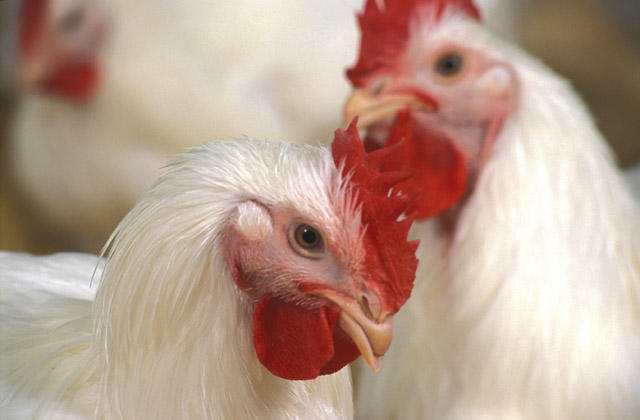
Section Branding
Header Content
Hundreds of birds euthanized after avian flu outbreak on south Georgia farm
Primary Content

A devastating virus spread by wildlife has ravaged a large south Georgia backyard farm, but state agriculture officials say they are hopeful the outbreak has been contained to that one farm.
A Toombs County farmer alerted the state Department of Agriculture over the Memorial Day weekend when he noticed birds in his varied flock becoming ill and dying. At least 350 animals have been culled so far to stop the spread, with crews still searching for a few stray chickens as of Thursday.
Georgia State Veterinarian Dr. Janemarie Hennebelle described the farm as having a “menagerie of birds” that included chickens, turkeys, ducks and peafowl.

Since the poultry were not being raised for commercial purposes, the farm was not required to be inspected. But state agriculture officials said it is unclear whether an inspection would have even picked up on the fast-spreading highly pathogenic avian influenza sooner.
“We really want to commend this flock owner, because they noticed that they had sick birds and they had some birds dying, and they called immediately,” Hennebelle said. “And that is really the backbone of what we need folks to be doing for any animal disease, not just highly pathogenic avian influenza. But it’s that old adage, if you see something, say something. So cliche, but so true.”
Neighboring commercial poultry operations were also tested, and those results have so far come back negative. Testing will continue weekly until restrictions are lifted. And even in times where there is no avian flu scare, all commercial chicken is routinely tested and then checked again before going to market.
The avian flu has wiped out millions of birds in other states, particularly hard-hit Iowa, but it has mostly spared Georgia where poultry is big business.
Before the holiday weekend, the highly pathogenic avian influenza had only been found in 11 wild birds here in Georgia this year. In the spring, the virus was confirmed in three bald eagles found dead along the coast.
But state ag officials have been on heightened alert for the possibility of non-wildlife cases for several months. They suspended exhibitions, swaps and other gatherings in February to cut down on the movement of poultry as a preventative measure, and the Toombs County outbreak means those events likely won’t be coming back anytime soon.
The Toombs County outbreak was also surprising because it happened as summertime heats up, creating unfavorable conditions for the virus to thrive.
“There’s no relaxation here,” said Agriculture Commissioner Gary Black. “There is no such thing as a day off when it comes to biosecurity, and likewise, there would not be such a day off for this department and being prepared to respond should there be another event.”
Poultry producers are urged to keep their birds sheltered and separated from the outside world by wearing dedicated boots to keep from unwittingly walking the virus into the bird spaces.
“It’s very important to control visitors to chicken coops or chicken farms since the virus is easily brought in with two human feet into the bird places,” said Dr. Louis Zavala, executive director of the Georgia Poultry Laboratory.
Zavala said signs of avian flu include decreased water and food consumption or a drop in egg production – or even depression. The birds tend to be stricken quickly with illness and die.
“If anyone’s ever been in a chicken house, you know that it’s generally a pretty loud place, but one of the more horrifying things is to go into a chicken house and it is quiet,” Black said.
How to report avian flu
Poultry producers, whether commercial or backyard farmers, can report suspected highly pathogenic avian influenza cases to the state Department of Agriculture at (770) 766-6850. Reports can also be made online: Avian Influenza Hotline | Georgia Poultry Laboratory Network (gapoultrylab.org).
This story comes to GPB through a reporting partnership with Georgia Recorder.

